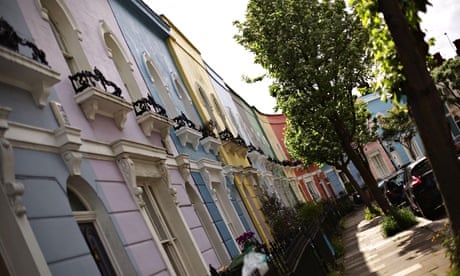Renters will outnumber homeowners in 104 of the UK’s 650 parliamentary constituencies by the year 2021, according to research from the campaign group Generation Rent. This will mean a large increase in the political power wielded by those who rent their homes.
The number of MPs with a majority of constituents who rent their homes has risen from 38 in 2001 (6% of MPs) to 65 in 2011 (10% of MPs). The report calculates that if this trend continues and house prices remain unaffordable to many people then renters will outnumber homeowners in 16% of constituencies by 2021.
Generation Rent, a group that campaigns to improve the rights of tenants, used data from the 2001 and 2011 censuses to find the proportion of the population that rents in each constituency. In 2011, 35% of people in the UK rented their home, either from a private landlord, the council or a housing association.
Forty-nine of the predicted 104 renter majorities are in London and many seats in large northern cities have been historically dominated by renters. Fifty of the 65 renter majority seats in 2011 were held by Labour.
Of the 39 extra constituencies that the report forecasts will become dominated by renters in 2021, 25 are currently held by Labour and 11 by the Conservative Party, nearly tripling the number of renter majority seats it currently holds. The safe Tory seats of Bournemouth East, Bournemouth West and Northampton South are projected to be renter majorities in 10 years’ time.
According to figures from the Office for National Statistics, the number of home owners in the UK fell for the first time in a century between 2001 and 2011, from 69% to 64%. All of the increase in the number of renters that occurred over that decade happened in the private rental sector.
Alex Hilton, director of Generation Rent, said: “As home ownership gets increasingly out of reach, ever more people will find themselves as permanent renters throughout their lives. Unless MPs adapt their priorities to reflect renters’ needs then 100 MPs will be irrelevant to their voters by 2020. MPs have one parliament to adapt and we expect any government elected in May next year to be proposing pro-renter policies by June.”
Generation Rent are calling for MPs, especially those representing constituencies that are predicted to become majority renters, to adopt the title of “Renter Champion” and commit to supporting pro-renter policies.
The report argues that, although mainstream political parties have proposed measures to help more people become home owners, they have not considered why 67% of private renters would prefer to own a home (a figure from Generation Rent’s ComRes polling).
It reads: “The average private renter spends 40% of their income on rent – the average mortgage holder spends 20% on repayments – and most tenancy agreements last six or 12 months. Renting is so expensive and so insecure that it is no wonder that home ownership is such a pressing goal.”

Comments (…)
Sign in or create your Guardian account to join the discussion